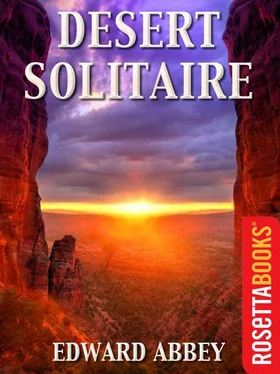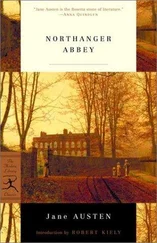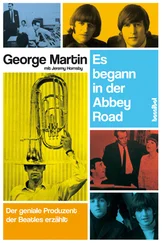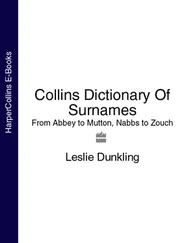Abbey, Edward - Desert Solitaire (Edward Abbey Series )
Здесь есть возможность читать онлайн «Abbey, Edward - Desert Solitaire (Edward Abbey Series )» — ознакомительный отрывок электронной книги совершенно бесплатно, а после прочтения отрывка купить полную версию. В некоторых случаях можно слушать аудио, скачать через торрент в формате fb2 и присутствует краткое содержание. Год выпуска: 2011, Издательство: RosettaBooks, Жанр: Старинная литература, на английском языке. Описание произведения, (предисловие) а так же отзывы посетителей доступны на портале библиотеки ЛибКат.
- Название:Desert Solitaire (Edward Abbey Series )
- Автор:
- Издательство:RosettaBooks
- Жанр:
- Год:2011
- ISBN:нет данных
- Рейтинг книги:4 / 5. Голосов: 1
-
Избранное:Добавить в избранное
- Отзывы:
-
Ваша оценка:
- 80
- 1
- 2
- 3
- 4
- 5
Desert Solitaire (Edward Abbey Series ): краткое содержание, описание и аннотация
Предлагаем к чтению аннотацию, описание, краткое содержание или предисловие (зависит от того, что написал сам автор книги «Desert Solitaire (Edward Abbey Series )»). Если вы не нашли необходимую информацию о книге — напишите в комментариях, мы постараемся отыскать её.
Desert Solitaire (Edward Abbey Series ) — читать онлайн ознакомительный отрывок
Ниже представлен текст книги, разбитый по страницам. Система сохранения места последней прочитанной страницы, позволяет с удобством читать онлайн бесплатно книгу «Desert Solitaire (Edward Abbey Series )», без необходимости каждый раз заново искать на чём Вы остановились. Поставьте закладку, и сможете в любой момент перейти на страницу, на которой закончили чтение.
Интервал:
Закладка:
Years later, still wandering in circles, I will come back to the Arches and the canyon country and inquire about my old acquaintances. Where are they? I will ask and the people will say to me:
Viviano Jacquez? You mean that little Mexican that worked for Roy Scobie? Well, who knows? Some say he went to Ouray, Colorado, to work in a silver mine; some say he married Scobie’s cook, that white girl from Oklahoma, and they went to California; some say he went back to sheepherding; some say he went to Spain.
And old Roy? You didn’t hear? Well he had to sell out a couple years after you left. He went down to Arizona and started an Indian jewelry store near Sedona. He’s dead now. He was hanging a picture on the wall of his store and had a heart attack. He was standing on a chair at the time.
COWBOYS AND INDIANS
PART II
There are lonely hours. How can I deny it? There are times when solitaire becomes solitary, an entirely different game, a prison term, and the inside of the skull as confining and unbearable as the interior of the housetrailer on a hot day.
To escape both, I live more and more in the out-of-doors. First I built the fireplace on a level bench of sandstone about fifty yards to the rear of the trailer. I dragged the wooden picnic table close to the fireplace and this became my office and dining room. Next I built a ramada or sunshelter over both. The ramada is a simple affair: four upright posts about ten feet tall tied and braced with crosspoles and supporting a thatched roof of juniper branches, which keeps out the sunlight but lets smoke and heat filter up through. There are of course no walls to this structure. The floor is sandstone, swept clean by the winds, with a couple of wild shrubs—cliffrose and blackbush—growing in one corner. The windbells and the red bandana, my private flag, hang from the projecting end of one of the crosspoles. Finally I set up a cot near the ramada—not under it—and my home without walls was complete. I can sleep at night with nothing but space between me and the stars, comforted in the knowledge that I am not likely to miss anything important up there.
The housetrailer serves now chiefly as storage place and kitchen. Although I sometimes cook at the fireplace outside, it is certainly easier to use the gas stove in the trailer, despite the heat. When the meal is ready I carry it out to the picnic table under the ramada and eat it there. The refrigerator, too, is a useful machine. Not indispensable but useful. It is in fact one of the few positive contributions of scientific technology to civilization and I am grateful for it. Raised in the backwoods of the Allegheny Mountains, I remember clearly how we used to chop blocks of ice out of Crooked Creek, haul them with team and wagon about a mile up the hill to the farmhouse and store them away in sawdust for use in the summer. Every time I drop a couple of ice cubes into a glass I think with favor of all the iron and coal miners, bargemen, railroaders, steelworkers, technicians, designers, factory assemblers, wholesalers, truckdrivers and retailers who have combined their labors (often quite taxing) to provide me with this simple but pleasant convenience, without which the highball or the Cuba libre would be poor things indeed.
Once the drink is mixed, however, I always go outside , out in the light and the air and the space and the breeze, to enjoy it. Making the best of both worlds, that’s the thing.
But how, you might ask, does living outdoors on the terrace enable me to escape that other form of isolation, the solitary confinement of the mind? For there are the bad moments, or were, especially at the beginning of my life here, when I would sit down at the table for supper inside the housetrailer and discover with a sudden shock that I was alone. There was nobody, nobody at all, on the other side of the table. Alone-ness became loneliness and the sensation was strong enough to remind me (how could I have forgotten?) that the one thing better than solitude, the only thing better than solitude, is society.
By society I do not mean the roar of city streets or the cultured and cultural talk of the schoolmen (reach for your revolver!) or human life in general. I mean the society of a friend or friends or a good, friendly woman.
Strange as it might seem, I found that eating my supper out back made a difference. Inside the trailer, surrounded by the artifacture of America, I was reminded insistently of all that I had, for a season, left behind; the plywood walls and the dusty venetian blinds and the light bulbs and the smell of butane made me think of Albuquerque. But taking my meal outside by the burning juniper in the fireplace with more desert and mountains than I could explore in a lifetime open to view, I was invited to contemplate a far larger world, one which extends into a past and into a future without any limits known to the human kind. By taking off my shoes and digging my toes in the sand I made contact with that larger world—an exhilarating feeling which leads to equanimity. Certainly I was still by myself, so to speak—there were no other people around and there still are none—but in the midst of such a grand tableau it was impossible to give full and serious consideration to Albuquerque. All that is human melted with the sky and faded out beyond the mountains and I felt, as I feel—is it a paradox?—that a man can never find or need better companionship than that of himself.
As for the “solitary confinement of the mind,” my theory is that solipsism, like other absurdities of the professional philosopher, is a product of too much time wasted in library stacks between the covers of a book, in smoke-filled coffeehouses (bad for the brains) and conversation-clogged seminars. To refute the solipsist or the metaphysical idealist all that you have to do is take him out and throw a rock at his head: if he ducks he’s a liar. His logic may be airtight but his argument, far from revealing the delusions of living experience, only exposes the limitations of logic.
In the evenings after work I sit at the table outside and watch the sky condensing in the form of twilight over the desert. I am alone but loneliness has passed like a shadow, has come and is gone. I hear the mutter of the flames in the fireplace, eating wood. Far away to the south I can see the headlights of a car or truck approaching Moab. It is so far away, that merged point of light, that unless you watch it steadily you will not perceive that it is in motion; relative to the distance the light moves as the stars move or about as fast as the sun fades from the sky or the fire consumes the log.
I am not alone. From the vicinity of Balanced Rock comes the cry of the great horned owl. Suppertime, for the owl. The mice, squirrels, gophers, rabbits know what I mean. What is he up to? Rather than hunt for his supper the owl seems to be calling his supper to come to him. He calls again and again, always from the same place, not moving, in a voice which seems to come from not one spot alone but—anywhere. A war of nerves.
His nervous, timorous prey, terribly insecure, hear that cry and tremble. Where exactly is the owl? Perhaps the next shrub, the next rock, would offer better concealment than this. They hesitate. The great horned owl cries again and a rabbit breaks, dashes for what might be a better place, revealing his position. Quiet as a moth the owl swoops down.
The horned owl may be the natural enemy of the rabbit but surely the rabbit is the natural friend of the horned owl. The rabbit feeds the owl. One can imagine easily the fondness, the sympathy, the genuine affection with which the owl regards the rabbit before rending it into edible portions.
Is the affection reciprocated? In that moment of truce, of utter surrender, when the rabbit still alive offers no resistance but only waits, is it possible that the rabbit also loves the owl? We know that the condemned man, at the end, does not resist but submits passively, almost gratefully, to the instruments of his executioner. We have seen millions march without a whimper of protest into an inferno. Is it love? Or only teamwork again—good sportsmanship?
Читать дальшеИнтервал:
Закладка:
Похожие книги на «Desert Solitaire (Edward Abbey Series )»
Представляем Вашему вниманию похожие книги на «Desert Solitaire (Edward Abbey Series )» списком для выбора. Мы отобрали схожую по названию и смыслу литературу в надежде предоставить читателям больше вариантов отыскать новые, интересные, ещё непрочитанные произведения.
Обсуждение, отзывы о книге «Desert Solitaire (Edward Abbey Series )» и просто собственные мнения читателей. Оставьте ваши комментарии, напишите, что Вы думаете о произведении, его смысле или главных героях. Укажите что конкретно понравилось, а что нет, и почему Вы так считаете.












